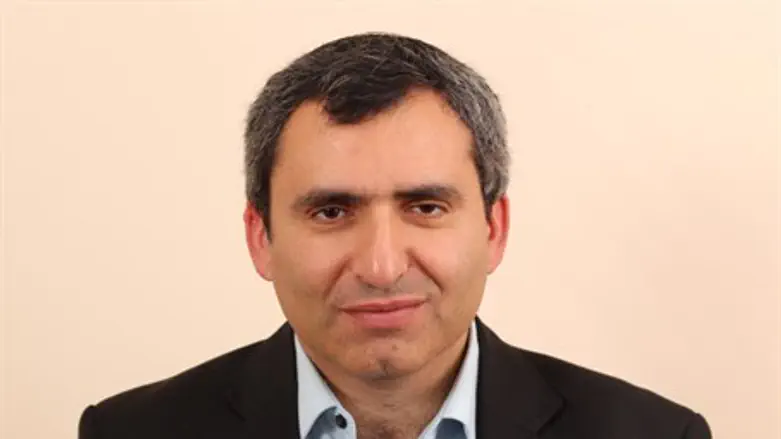
Prime Minister Binyamin Netanyahu is willing to negotiate with the Palestinian Authority at any moment, but its Chairman Mahmoud Abbas prefers to take unilateral moves instead of talking, Deputy Foreign Minister Zeev Elkin said on Wednesday.
Speaking during a meeting in Rome with Italy’s Foreign Minister, Emma Bonino, Elkin said, "Prime Minister Netanyahu is ready to return to the negotiating table with the Palestinians at any time, without preconditions. It should be made clear to the Palestinians that each unilateral action delays the peace process. Unilaterally going to the UN actually distances us from negotiations and proves that there is no true partner on the other side.”
In similar remarks earlier Wednesday, Elkin accused Abbas of pursuing unilateral moves to seek statehood in hopes of avoiding concessions that would be demanded in negotiations with the Jewish state.
"Abbas thinks that the unilateral path will get him further and that way he won't have to pay a political price," he told Kol Yisrael radio.
Elkin spoke a day after Abbas placed the responsibility for the stalled peace talks on Israel, claiming that the "ball is in Israel's court". It is, however, Abbas himself who has refused to talk with Israel since 2010, though it agreed to his precondition and froze construction in Judea, Samaria and eastern Jerusalem for 10 months.
Instead, he has continued to impose preconditions on talks with Israel, including a demand that Israel release terrorists who were jailed before 1993, freeze construction for a second time and even present a map of the future Palestinian state before any negotiations take place.
On Wednesday, Netanyahu issued a call of his own to Abbas, telling him during a speech in the Knesset to “give peace a chance.”
"We are in favor of starting negotiations immediately without preconditions,” Netanyahu said.
Also on Wednesday, PA leaders marked 46 years since the Six Day War, calling for a two-state solution based on the indefensible pre-1967 borders.
“The people of Israel are not ready to commit suicide and make the same mistake they made when they pulled out of Gaza (in 2005)," he said, referring to the “disengagement” from Gush Katif which resulted in thousands of rockets being fired on southern Israel by Gaza-based terrorists.
Elkin’s meeting with the Italian Foreign Minister also dealt with the Iranian nuclear program, the use of chemical weapons in Syria, Hizbullah’s involvement in what is happening in Syria, and the efforts to blacklist Hizbullah as a terror organization by the EU.
The meeting also dealt with an EU plan to label products manufactured in Israeli communities in Judea and Samaria, which has been supported by Germany, Britain and France, among other countries.
Elkin pointed out to Minister Bonino that labeling products from “settlements” would ultimately hurt PA Arabs more than it will hurt Israel.
A report by the Foreign Ministry has noted that some 22,500 PA Arabs are employed inside Israeli towns in Judea and Samaria. These Arabs, who are among the highest paid laborers in the PA and who enjoy social rights, including health benefits and pension rights, would be in danger of losing their jobs if the labeling plan goes through.
